
 | Scout Tafoya | Thriller/Drama | 1h 44m
| Scout Tafoya | Thriller/Drama | 1h 44m
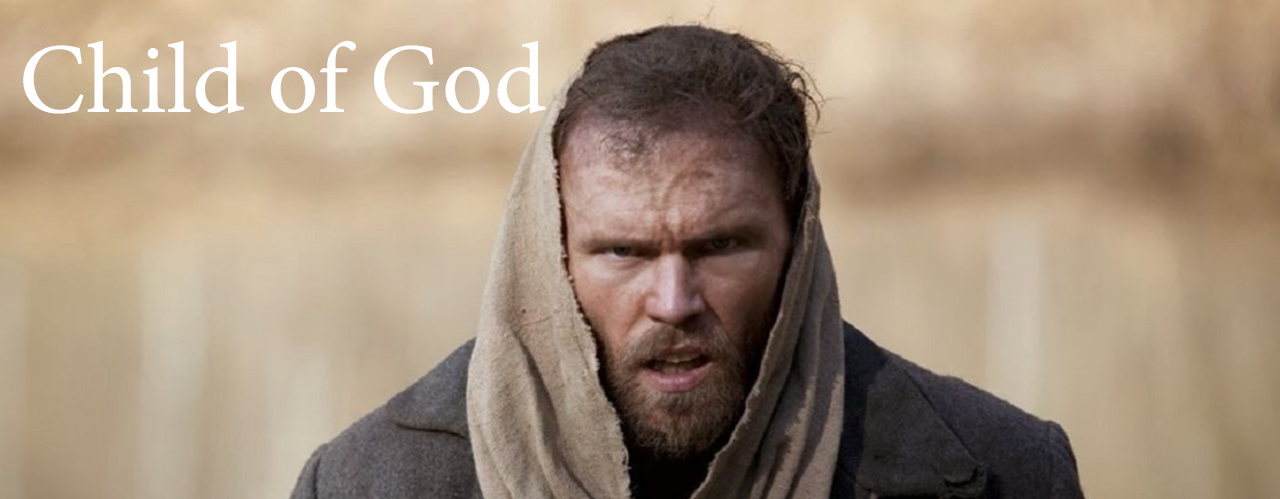

 | Scout Tafoya | Thriller/Drama | 1h 44m
| Scout Tafoya | Thriller/Drama | 1h 44m
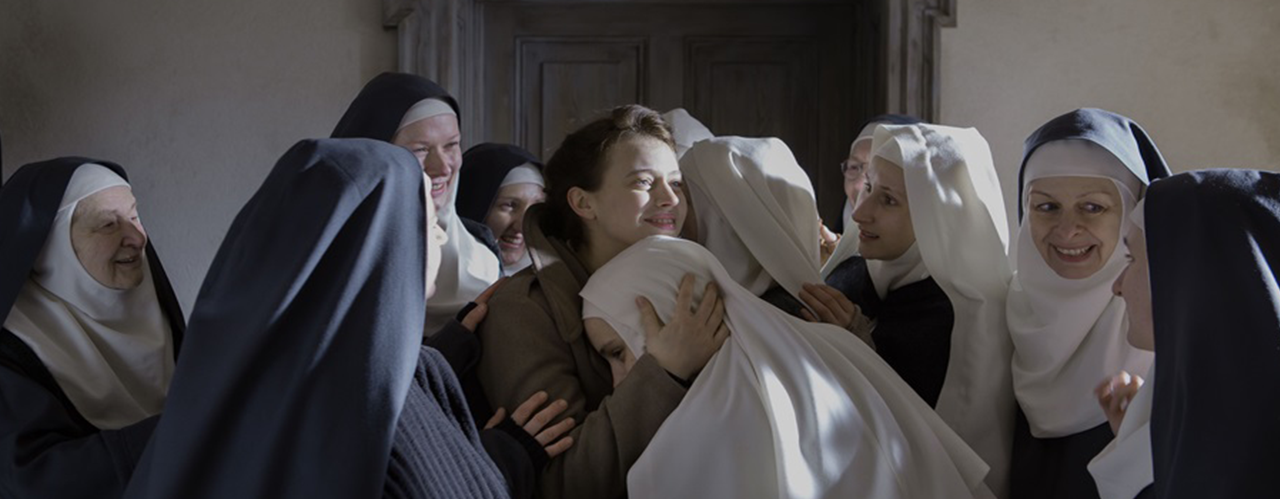
Alissa Wilkinson | Agnus Dei tries to approach (but not fix) the repercussions of unspeakable cruelty with the quiet balm of beauty. A must-see film that quietly suggests a surprising answer to the problem of evil. (image by Anna Wloch)
One of the oldest refrains in the world is the theodicy question: how could a good God let bad things happen?
That question animates Agnus Dei, which premieres at the Sundance Film Festival on Tuesday. But the film's answer is expansive, complex, and subtly subversive. Directed by Anne Fontaine (Coco Before Chanel, Gemma Bovary) and led by an all-female cast, the movie tries to approach (but not fix) the repercussions of unspeakable cruelty with the quiet balm of beauty.
Agnus Dei is set in 1945, amid the ruins of World War II. Mathilde (Lou de Laâge) is a young French doctor working with the Red Cross in Poland. Through an unusual set of circumstances, she comes into contact with a convent of Polish nuns who, she discovers, are in advanced stages of pregnancy. Months earlier, a group of Russian soldiers had broken into the convent and raped the women repeatedly, staying for several days. The horror haunts them still, even while they have tried to regain their faith and practice their vocation. Full of shame, they’re convinced of the need to conceal their condition, lest they be shut down by their superiors. And yet the reminders linger in their own bodies and, nine months later, are about to arrive.
Mathilde isn't Catholic; over vodka one night, she tells her fellow doctor and sometime lover Samuel (who himself is Jewish) that her parents were staunch Communists, and she seems untroubled by her lack of faith. Late in the film, it becomes clear that Mathilde and Samuel, considered by some to be the unholy interlopers in a world of peace and piety, are in fact more aware of the implications of their own vocation as doctors than some of the women in the convent.
That in part is the genius of the film: it doesn't force Mathilde or Samuel to have some kind of religious awakening in order to act as an angel of mercy for the nuns, nor does it lump all the pregnant women into one category, with one way of thinking about their predicament. Those women are painted as full, complex characters in a few deft strokes—women who are struggling after rape to know whether they believe in something anymore, to understand their vows of chastity, to live in the problem of theodicy every day.
The word "beauty" gets tossed around irresponsibly a lot, often by people who feel the need to invoke it in art's defense. But that does beauty a disservice. It is not a quality that lets us feel the things we find pleasant are worthwhile; it is an unruly, unsafe force that we feel in our bones rather than our minds, and that makes us desire. (To say that beauty is erotic isn't to tie it to sex; it's to say it makes us want, in a non-rational way.)
So to say Agnus Dei is a stunningly beautiful film isn't to aestheticize it. Most of the film’s images could be paintings, images of women shot in the natural light and shadow of the convent, of stark forests laden with snow, backed by the sounds of the women singing their prayers and—finally—Max Richter’s “On the Nature of Daylight” (which I only recognized because it’s the melody that makes me most achingly sad, in all the world). But every bit of this comes at great price to the wounded and victimized.
But it is that beauty, evoked by the film's sensual elements rather than its narrative ones, that forms the film’s run at the theodicy question. Various characters try to give an answer for what has happened through appeals to beauty’s companions: truth and goodness. But those are insufficient on their own. Living a perfect life after tragedy cannot heal the tragedy; simply reiterating the truth isn’t enough to cover violence.
The characters never talk about beauty, living in the austerity of war-torn Poland on the one hand and the convent on the other. Instead, Fontaine allows the images and music to simply seep into the viewer’s bones, suggesting a third way of living with trauma. As one of the nuns points out to Mathilde, even when the war ends, the world is not going to be more kind to them. What saves them, ultimately, is a closer connection to the world outside their walls, to messier parts of life, to the beauty of the world in its woundedness.
In his dense book The Beauty of the Infinite: The Aesthetics of Christian Truth, David Bentley Hart writes about beauty and power:
Christ is a persuasion, a form evoking desire, and the whole force of the gospel depends upon the assumption that this persuasion is also peace: that the desire awakened by the shape of Christ and his church is one truly reborn as agape, rather than merely the way in which a lesser force succumbs to a greater, as an episode in the endless epic of power.
The film’s French title is Les innocentes, which is perhaps a better moniker. Many “innocent” people have been victimized by those with power—from the nuns and their offspring to the children who need someone to watch over them. Peace is what they yearn for: peace in which the lesser force, having surrendered to a greater one, is not hurt but made whole.
Agnus Dei doesn't give a definitive solution. It just points to a few starting places. And it makes us long for peace.
Alissa Wilkinson is Christianity Today's chief film critic and an assistant professor of English and humanities at The King's College in New York City. She tweets @alissamarie.
Check out the original article on Christianity Today site

Among many (many, many) things, Hail, Caesar! is a passion play: a canny bit of work on the Coens’ part, given this year’s proliferation of biblical epics both remade and reimagined. In just the next few months, that includes Risen, The Young Messiah, Last Days in the Desert, the Tyler Perry-hosted The Passion Live, and the ABC show Of Kings and Prophets—and, yes, a Ben Hur remake.
Those characters feel like what would happen if Turner Classic Movies accidentally left the door unlocked at night. Scarlett Johansson is a mermaid in a synchronized swimming fantasy picture; Ralph Fiennes helms a high-society Broadway adaptation in which America’s favorite lassoing cowboy (Alden Ehrenreich) is being forced to star so the studio can “change his image”; Channing Tatum is a deceptively mild-mannered singing and tap-dancing sailor; there’s a Carmen Miranda-like sweetheart (Veronica Osorio)—and George Clooney is a centurion among slaves in the sword-and-sandal Hail, Caesar!
That last production is in full swing, and Mannix is watching the dailies (“DIVINE PRESENCE TO BE SHOT,” the subtitles announce at opportune moments—the film is still in production) when he discovers its star has been kidnapped.
In one subplot, in a nod to the Communist writers who were blacklisted, a disciple-like cadre of Communist acolytes following their leader—suggestively named Dr. Marcuse—kidnap Clooney’s genial star and educate him in the ways of “direct action” and “accelerating the dialectic” while holding him for ransom (a startlingly common plot point in the Coens’ films, by the way). Everything can be explained by economics, they say, quoting Marx, and so certainly the concept of rendering to Caesar—either through Capitol Pictures, Das Kapital, or capitalism—is part of this title.
But mostly it’s about the meaning of life by way of religion, with which the Coens have always fiddled, sometimes dancing around the edges and sometimes diving straight into the middle. Hollywood’s Golden Age gives them the perfect excuse for a hysterical scene straight out of a joke: two priests (one Catholic, one Orthodox), a Protestant minister, and a rabbi sit in a boardroom with Mannix, debating whether the depiction of Christ in an upcoming picture “cuts the mustard” or is offensive. As the rabbi points out, for Jews it’s forbidden to portray God, but luckily for them Jesus isn’t part of the godhead. One of the ministers explains that technically Jesus is the Son of God. (The conventional disclaimers at the end of the credits explain that “This motion picture contains no visual depiction of the godhead.”)
Such a scene would in fact have happened regularly at the time, when clergy were called in to consult on both religious movies and others, as part of a partnership between Hollywood and the nation’s ministers to promote the moral health of the nation. It’s worth nothing that in today’s religious movie boom, the same thing often happens—this time to gauge (as in the film) the potential reaction from religious leaders and congregations.
But as I said earlier, this is a passion play, one with Eddie Mannix at its center, our Man of Sorrows, the savior of the (movie) world. Lest we miss that, the film opens on a long establishing shot of a crucifix before moving to Mannix in the confessional booth, where he’s confessing the most banal of crimes before moving on to his work day.
Note: from here on, there are some mild spoilers, though it's hard to spoil a narrative so established.
Unlike every movie executive we’ve ever seen in a film, Mannix is a thoroughly decent guy who speaks nicely to his wife and tries to do his best. But he has reached a crossroads—a point of temptation, if you will. The tempter is a friendly Lockheed Martin executive, who wants him to abandon his true work in the world and come live the easy path.
All day long, Mannix suffers for his stars. He takes their verbal drubbings and deals with their indiscretions and sins and tries to keep them out of trouble, tasked with the thoroughly thankless job of keeping their images squeaky clean. He is dogged by twin competing gossip columnists (both played by Tilda Swinton).
He has been tempted away from this lonely path once and is tempted twice more (in a Chinese restaurant lit like an opium den when he first walks in) by the Lockheed executive, our Satan stand-in, folding the encounter in the desert into the film. He labors under the weight of his own conscience and the weight of the temptation before him, and encounters hazard after hazard on the road to his decision.
Near its end, we catch him in Gethsemane echoes deep in prayer, rosary in hand, as he contemplates what to do—and in a neat trick made possible by the existence of an actual set for a crucifixion scene being shot on the studio lot, he even approaches three crosses on Calvary.
The Coens are too meticulous to not have intended all that. What’s so fun about Hail, Caesar! is that it lets all the characters (played by your actual favorite movie stars) and sets and images from films made both during and about its time, from comedies to noirs to political dramas, come together in a grand mash-up that is then structured like one of the most enduringly popular genres: the biblical epic, the “Greatest Story Ever Told,” the archetypal tale of suffering and redemption.
But they don’t spring for an easy analogy. These are the Coens: nothing serious ever happens without a wink or a joke. Mannix isn’t the actual man of sorrows; he’s just in the movie business, which is always at its end a bit (or more than a bit) absurd. A speech given by the centurion at the foot of the cross seems like the stand-in for his epiphany—but later he gives a different confession, one that rings more true, about feeling that what he’s doing in the movie business is right and important.
So in a bit of in a bit of cyclical storytelling that recalls the repetitive structure of their last film about a soul tortured by his work, Inside Llewyn Davis, Mannix returns to the confession booth and talks about his cigarette habit. In classic Coen fashion, meaning in life comes down to the love that individuals share with one another, not the absurdity inherent in fate or big ideological systems. Mannix loves his wife too much to not feel bad about quitting his habit; other characters love their ridiculous dogs more than money, or make unlikely matches in unlikely offices. Every day is a fresh set of trials and temptations for the man of sorrows, but he never really faces crucifixion—just another day on set.
Hail, Caesar! is rated PG-13 for suggestive situations and smoking. Most of what’s uncouth about it is done by implication rather than seen on screen. The sailors’ song-and-dance scene is innocently (or not) homoerotic, and the mermaid one seems rather obviously phallic, but that will sail right past plenty of viewers. A character talks about another one engaging in “sodomy” (that is the word used) to get a job; another character is pregnant without being married, which provides a plot point for the film. It’s possible that some religious viewers might be offended by the film-within-a-film giving occasion for a few situational jokes in a religious context, but it certainly isn’t done irreverently. And neither Communism nor capitalism is outright condemned by the film itself, which I suppose some people may find offensive.
Alissa Wilkinson is Christianity Today’s chief film critic and an assistant professor of English and humanities at The King’s College in New York City. She is co-author, with Robert Joustra, of How to Survive the Apocalypse: Zombies, Cylons, Faith, and Politics at the End of the World(Eerdmans, April 2016). She tweets @alissamarie.

"I was pleasantly surprised at how these characters and events can give insights into our most important relationships." (Poster | Star Wars)
I write a lot about healthy relationships. I've done plenty of posts offering principles for a strong marriage or keys to coaching your kids on how to enter romantic relationships with wisdom. It's what I do.
I'm also a big Star Wars fan. Given the fact that The Force Awakens (episode 7 for those who aren't paying attention) opens this week, I couldn't help but mine the Star Wars canon for some valuable relationship advice. After some thoughtful consideration, I was pleasantly surprised at how these characters and events from "a long time ago in a galaxy far, far away" can give us insights into our most important relationships.
For no particular reason, I've chosen to put these bits of wisdom in an order that generally reflects the timeline of when we encountered the characters and events. Whether you are married or hoping to coach your kids, I'm sure these truths will absolutely revolutionize your life. Or not.






He is at least 7 years younger than her and was absolutely annoying as a child. He grows into a handsome young man but still has the personality of a rotten turnip. His role model is a crusty old man with an eye on the absolute domination of the known galaxy. And if your daughter's boyfriend ever suggests that murdering a bunch of young trainees in his religious order is a good thing, she should take that as a warning sign that the he is not the marrying type. Better to end it now than to have to deal with his dysfunctional tendencies later.
Since one portion of our work at INFO for Families is devoted to discovering God's design for sexual health in marriage, I will offer one final piece of relationship advice to all the wives out there. If are you're looking for "a new hope" to bring some spice back into your marriage, buy one of those Princess Leia costumes from the Jabba the Hutt scene in Return of the Jedi. You can't go wrong.
Barrett and Jenifer Johnson. After serving in the local church for 25 years, Barrett and Jenifer launched INFO for Families as a ministry designed to encourage people through speaking, personal coaching and resource development. Barrett served for 15 years in youth ministry before serving for eight years as the Family Minister at Johnson Ferry Baptist Church in Atlanta, one of the largest churches in the South. He has degrees from Texas A&M University and Southwestern Seminary, but he and Jenifer have received their best education through the no-holds-barred nature of everyday family life.
For original article go to infoforfamilies.com

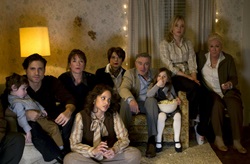


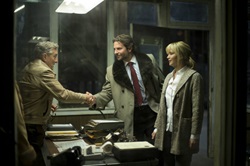
Alissa Wilkinson is Christianity Today’s chief film critic and an assistant professor of English and humanities at The King’s College in New York City. She is co-author, with Robert Joustra, of How to Survive the Apocalypse: Zombies, Cylons, Faith, and Politics at the End of the World (Eerdmans, May 2016). She tweets @alissamarie.

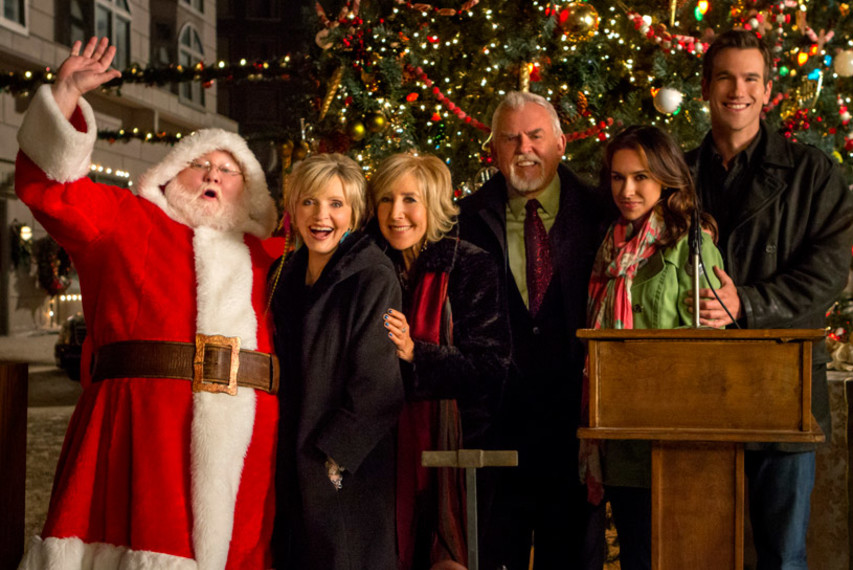


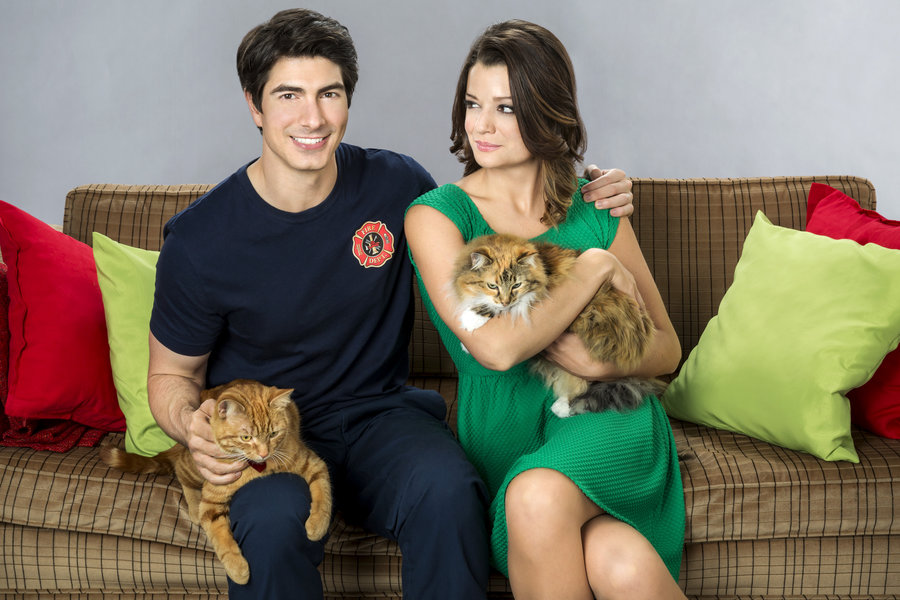




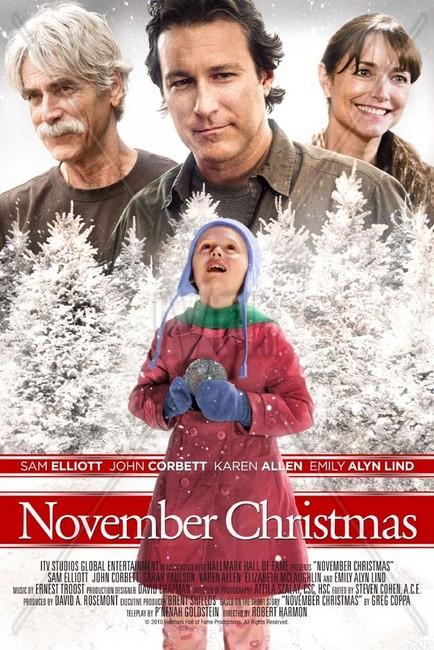

Movies review by Kylie Stewart. You may check out the original review at The Odyssey Online. You can tweet Kylie online. Sea foam green, frequent coffee runs, and a whole lot of Jesus in my life.

It starts with a girl. She’s white, with immaculately curled hair. She is shy/clumsy/uptight, but deep down, she wants to open a bakery/be an artist/follow her dreams.
Then there’s the boy. He’s also white, with perfect teeth and hair like a businessman from the ‘80s. He works too much/doesn’t care about the holidays/needs help raising his kids because his wife recently died.
Maybe the roles are reversed; it doesn’t really matter. The lighthearted conflict between them goes on for 45 minutes to an hour, until they kiss at the end. Cue the music, fade to the credits, and then it starts all over again.
This is the Hallmark Channel’s Countdown to Christmas spectacular, a nonstop lineup of variations on the romantic holiday movie formula. In 2015 alone, Hallmark has released 17 new Christmas-specific movies, adding to their expansive back catalog of made-for-TV films. This year was my first time sitting down to watch their feel-good movie marathon, but the plotlines were familiar to me as an evangelical girl who grew up longing for a safe, happy, magical world where it felt like Christmas every day.
While mainstream culture scorns the romance as lowbrow and naively idealistic, it remains a hugely profitable enterprise thanks to its loyal readers and viewers. Last year, from Halloween to Christmas, Hallmark was the No. 1 channel for women age 25-54, and a single one of their holiday films, Christmas Under Wraps, attracted 5.8 million viewers. (That’s double the viewership of most Real Housewives shows.)
Once-niche “nerd” entertainment gained popular esteem as it proved itself lucrative (think Marvel movies, Star Trek reboots, and the like), but Hallmark Channel-style romance continues to elicit a degree of derision. No one is more acutely aware of the reputation of these sentimental and seasonal romances than the women who adore them. When I asked a few fans why they tuned in, the answers came in sheepish sentiments: I know they are predictable but… they are calming background noise… I just like happy endings… Christmas is a hard time of year, and they make me feel good… I’m probably too idealistic, but they are just so full of warmth….
These caveats offer some protection from judgment and let others know that they are aware of the criticisms of the genre. But perhaps loving the Hallmark Channel at Christmastime isn’t something to apologize for. More broadly, it may be time a shift in our language when we talk about loving something that we know isn’t perfect.
My friend (and Christ and Pop Culture founder) Richard Clark once told me he doesn’t believe in guilty pleasures. Watch what you want to watch, he said. If you truly feel guilty about watching something, maybe you should turn it off. As I read what fans told me about these pleasant movies, chock-full of bland actors and hopeful messages, I realized there is nothing to feel guilty about. They contain nothing morally wrong or hurtful or violent or exploitative. And yet, people (mostly women), still do.
Perhaps our desire for elite taste beyond the Hallmark Channel fare comes out of a sense of pop culture classism. While exploring the enormous popularity of Celine Dion, music writer Carl Wilson presented a theory from sociologist Pierre Bourdieu wherein taste becomes a way “to set ourselves apart from those whose social ranking is beneath us, and to take aim at the social status we feel we deserve.” We see this play out culturally in our sneers directed at Celine, romantic movies, or even the incredibly popular Adele. Anything deemed so accessible by women—women from a wide variety of classes, in particular—automatically becomes an issue of bad taste for those who consider themselves more refined.
This gendered and class-based judgment should distress us as Christians, as people called to break down cultural distinctions and barriers, not create or uphold them (especially when we happen to be on the “winning” or “artistically savvy” side). No one, as far as I can tell, regards the romance genre as a bastion of artistic innovation or importance. But as another music critic, Joel Heng Hartse writes, “What is taste, after all, other than love?” So many people love these movies and find them as hopeful as they are improbable. Perhaps the enormous popularity of romantic holiday movies serves as a reminder of our desire see happy endings played out before us, at least every now and again.
To be honest, the few movies I watched as research for this essay felt only mildly pleasant. I chuckled a little bit. Immersed in a world of few problems and many beautiful people, I felt happy enough when they got together in the end. I will probably watch one or two a year (any more than that and it does start to feel a bit like a money-making cash enterprise, the movies subsisting to sell advertising spots). As the writer and Countdown to Christmas fan Addie Zierman told me:
There's also a little tiny part of me that finds it sort of nice—this idea that somehow during Christmastime people start to see things better. Truer. They let go of old hurts. They forgive their parents. The go home after being away too long. They make peace with their past. Things are made right in the end.
Those desires—to see and experience forgiveness, homecoming, peace, redemption—all stem from deep spiritual needs. And wouldn’t it be better if we didn’t judge people for seeking out those kinds of stories, if instead we strove to find the commonalities of desire that transcend gender, race, and class? Now that would be a Christmas miracle, indeed.
D. L. Mayfield’s writing has appeared in various publications such as CT, McSweeney's, and Image Journal, among others. Her favorite romantic comedy is “The Decoy Bride” starring the magnificent David Tennant. Her book of essays titled Assimilate Or Go Home: Notes From a Failed Missionary on Rediscovering Faith will be out from HarperOne in August 2016. Find her at dlmayfield.com or on Twitter.
